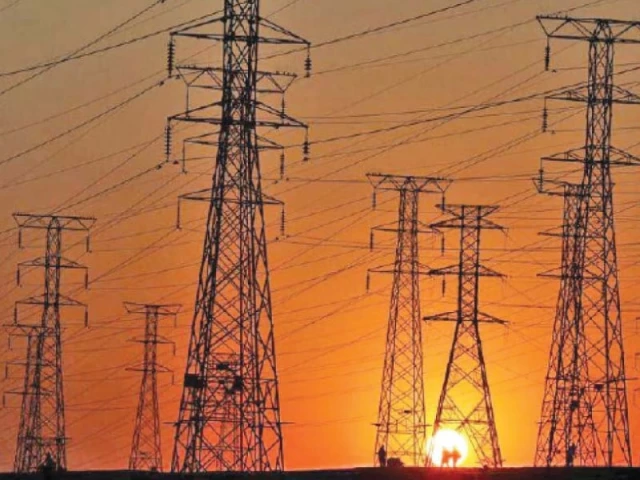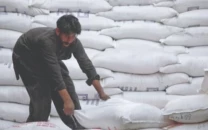Subsidies trimmed by Rs180b to Rs1.18tr
Power sector to get lion's share of Rs1.03tr while allocations for KE, AJK, FATA, and industries cut

The government has slashed the allocation for subsidies to Rs1.18 trillion for the upcoming fiscal year 2025-26, of which Rs1.036 trillion will go to the power sector.
The government had earlier allocated Rs1.36 trillion in subsidies for the power sector and other commodities, which went up to Rs1.378 trillion for the ongoing financial year, according to revised estimates.
With the subsidy allocation for FY26, the government expects to provide some relief for consumers of electricity, petroleum, food, urea, wheat subsidy, and mark-up for low-cost housing. However, it remains uncertain whether the government will be able to stay within the subsidy ceiling or exceed the target, as happened in the outgoing year.
According to the Budget Book released on Tuesday, the subsidy bill has been estimated at Rs1.186 trillion for the next fiscal year, a reduction compared to the current financial year's allocation. Out of the total subsidies, a major chunk worth Rs1.03 trillion will go to the power sector compared to Rs1.19 trillion for the ongoing financial year.
For the next fiscal year, the government has earmarked Rs249 billion — down from Rs276 billion — for payments for Inter-Disco tariff differential. An amount of Rs40 billion has been set aside for the merged districts of Khyber-Pakhtunkhwa (K-P including Federally Administered Tribal Areas (FATA) subsidy), compared to Rs65 billion allocated during the outgoing fiscal year for FATA subsidy arrears.
The government has also set aside Rs74 billion for the next financial year — down from Rs108 billion — for the tariff differential for Azad Jammu and Kashmir (AJK).
An amount of Rs48 billion has been earmarked for the Pakistan Energy Revolving Fund (PERA), the same as the ongoing financial year.
The subsidy allocation to cover K-Electric's (KE) tariff differential has been slashed to Rs125 billion for the next fiscal year, compared to Rs171 billion allocated during the outgoing financial year. However, the government has increased the allocation to Rs1 billion for agriculture tubewells in Balochistan for KE consumers, up from Rs500 million during the outgoing year.
Of the total, the government has allocated Rs95 billion for payments to Independent Power Producers (IPPs) for the next fiscal year. No allocation was originally made for IPPs in the outgoing year, but later Rs115 billion was provided in the revised budget estimates.
The government has also allocated a Rs1.2 billion subsidy for petroleum for the next fiscal year, down from Rs18.4 billion.
An amount of Rs1.2 billion has been earmarked to meet the shortfall in guaranteed throughput of Pakistan Electric Power Company (PEPCO), down from Rs2.4 billion this year.
An allocation of Rs6 billion was also made during the outgoing fiscal year to cover the shortfall of Asia Petroleum; however, no such allocation has been made for the next year.
For the ongoing fiscal year, the government had allocated Rs10 billion for domestic consumers through Sui Northern Gas Pipelines Limited (SNGPL), but no allocation has been made for this purpose in FY26.
The subsidy cushion for the Pakistan Agricultural Storage and Services Corporation (PASSCO) has been increased to Rs20 billion from Rs12 billion for the current year. Of this, Rs14 billion will go for wheat reserve stocks and Rs6 billion for the cost differential in the sale of wheat.
The government has slashed the subsidy allocation to Rs24 billion for the next fiscal year from Rs68 billion for industries and production. Of this, Rs9 billion will go as incentives for electric vehicles (EVs), and Rs15 billion to clear Utility Stores Corporation of Pakistan (USCP) sugar subsidy arrears. No allocation has been made for the Ramazan Package or USCP PM Package.
However, the government has increased the allocation to Rs104 billion for 'other subsidies' against Rs75 billion allocated earlier, which rose to Rs90 billion in revised estimates this year.
Of this, Rs20 billion will go for wheat subsidies in Gilgit-Baltistan (G-B), and Rs15 billion for imported urea fertiliser.
The Naya Pakistan Housing Authority will get Rs1 billion, with an additional Rs7 billion for the mark-up subsidy and risk-sharing scheme for, farm mechanisation, under the Kissan Package.
The government will release Rs1 billion for the refinance and credit guarantee scheme (SME Asaan Finance), while Rs5.4 billion has been allocated for SME sector financing enhancement.
An allocation of Rs30 billion — up from Rs13 billion — has been made for the mark-up subsidy supporting the phase-out of SBP refinancing facilities.
Further allocations include Rs3 billion for 5km radius gas schemes, Rs5 billion for the EFS Enhanced Plan-Exim and Related Scheme, Rs5 billion for housing sector subsidies, and Rs7.3 billion for the Metro Bus subsidy.






















COMMENTS
Comments are moderated and generally will be posted if they are on-topic and not abusive.
For more information, please see our Comments FAQ